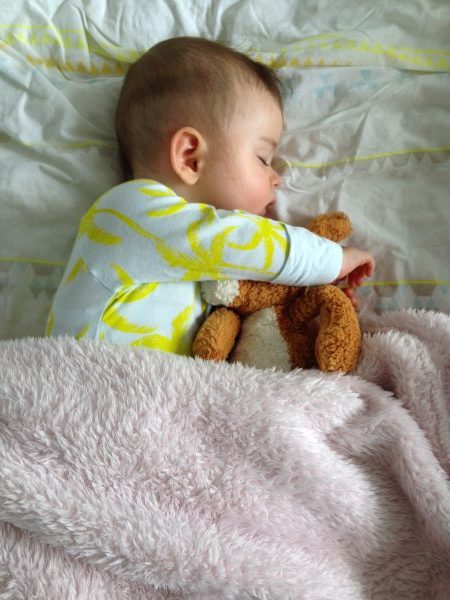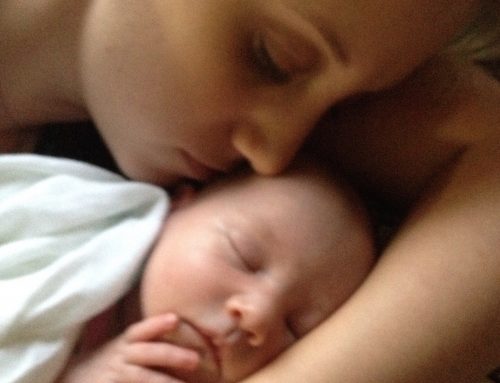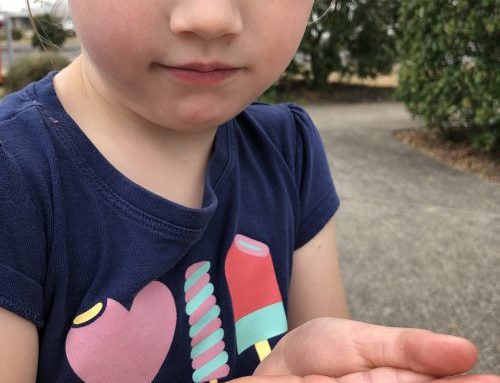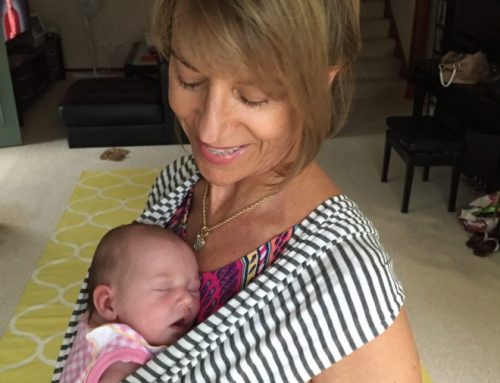Lately, I understand, there has been a frisson of activity on a parenting page regarding a blog I wrote in 2014. In the blog about preventing sleep problems in six month olds I quoted from my book “Your Cherished Baby’ and suggested:
Ideally, he should be put down drowsy but awake. If possible there should be minimal fussing after tucking in. Unless it is your choice and the baby’s habit, once down, avoid rocking, cuddling or patting to sleep. And if it is, you have a choice to gradually (step by step, night by night) wean the baby off such input or continue it.
1st wave behaviourism (remove the stimulus and the behaviour will change) has been a technique that has been used with babies for eons. We know that by withdrawing a caring response babies have an innate ability to silence themselves to avoid predators. However we know this ‘extinction’ of the protest cry is unhelpful in the long term as it programmes the baby to believe that her parents are unreliable and life is not necessarily safe. I have laid out this information clearly in my books and blogs.
But what about the ‘gentle persuasion’ methods, as in the quote above?
“When information changes, I change my mind. What do you do, sir?”.
What has changed for me is the realisation that exerting any pressure on the baby to sleep longer often makes the situation worse, even in the short term. Babies find it hard to reconcile the fact that during the day the parents are completely attentive, but at night, when it’s dark and scary, they are not. Indeed they notice that their parents are also stressed and anxious as they desperately try to make their baby sleep. “I’d better stay awake and find out what’s the matter with them” thinks our baby.
By putting their baby under pressure to sleep longer at night the parents prolong what would otherwise be a brief developmentally driven stage into a longer-term problem of nocturnal anxiety.
A gentle pragmatic approach to the so called ‘sleep regression’ by a calm responsive parent will make the normal maturation of their baby’s sleep pattern unfold as smoothly and as quickly as possible.
- Breastfeeding to sleep is fine (at any age). See https://www.babydoc.com.au/breastfeeding-to-sleep/
- Do not give your baby the impression that their night waking is a problem for you; it will improve as soon as the baby can cope.
- Pretend (if necessary) to be relaxed and carefree about the night waking.
- However don’t make the night hours party-time. Keep the room dim and your responses muted, low-key and calm.
- Remember the amount of sleep needed by a baby varies enormously from baby to baby. A recent study of just breastfed babies showed at six months the average sleep need is 12.9 hours but the range is large: 8.8 – 17.0 hours! The 8.8-hour baby needs only a couple of naps before meeting a lot of his daily needs!
- A bright room for the first feed of the day and later daytime naps and a dim room at night will enhance the baby’s circadian rhythm.
- Busy interesting days will increase the pressure for your baby to be tired by the evening and encourage better sleeps. (I’ve met some mums who wanted their six-month-old babies to nap for long periods like newborns and then expect them to sleep soundly all night…)
- Poor sleep does not cause development problems in babies.
In my book you will notice that I keep saying that parents have a choice to do as they wish and what their life requires. My preference has always been that there should be no coercion for their babies to sleep longer.










Thank you. Just thank you.
Sometimes the pressures can be great and the mothers groups opinionated. Motherig instincts can be taken over by mothers guilt.
Thank you for the gentle reminder to just love my baby and that in time, this too shall pass.
So refreshing and reassuring to hear all this Dr Chilton. With regards to day time naps, I was told that we should be aiming for between 90-120 mins per nap and that at 7 months my baby should still be having 2-3 naps of this duration a day. Along with the old adage ‘sleep promotes sleep’! Does it not matter how long my baby is sleeping at naps during the day, but more that they are having a nap when they are tired during the day?
You’ve got it exactly. They should sleep when they are tired.
Hi Dr Chilton!
Thank you for the posts! I was so concerned that my baby will be sleep deprived and cause development problems if he has very poor short naps and interrupted night sleeps because I thought like adults we can’t function well if we haven’t had enough sleep.
Your post has reassured me that is not the cause.
I have been struggling to get my now 6 month old to nap since hr was 1 month old!
He is very inquisitive and he will not sleep in prams or capsule unless he’s very very tired (even with white noise and blanket covering over to block this interesting world). He naps better in his cot with curtains drawn and white noise but his nap times and durations varies alot from 40 mins to 2 hrs. Mostly 40 mins to 50 mins
So I see every where it says babies can only be awake for certain duration appropriate for their age.
But what you are saying is that I don’t need to provide him the opportunity to sleep by making a better sleep environment so they can fall asleep when my 6 month old has been awake for 2 hours before he’s overtired and difficult to settle?
Also do I let him sleep in or let him have a long morning nap if he’s had a terrible night waking every hour or 2
Or do I try and get him up at similar time everyday regardless and cap his morning nap to an hour to encourage better lunch sleep and hence night sleep?
Thank you!!
Common sense! Don’t stick to a routine if it makes no sense. Bad night – let him sleep in. Forget the clock!
My 1st daughter was a 8hrs total sleep a day baby and at 3 still is the girl who sleep forgot.
She ia super clever, funny and articulate, we joke that it’s from all those extra interaction hours not spent sleeping.
Her 5 month old sister is a totally different kid who is happy to nap on the go in the carrier or wrap, after a feed, and actually naps and sleeps at night in regular blocks.
2 kids same parents, totally different personalities and sleep needs.
Hi,
I have a six month old baby boy.I have been reading up on baby sleep articles since his birth(he was very difficult to settle).I wish I had come across this website earlier!This has been the most sensible and practical sleep advice ever.You actually advocate to address the baby’s need for security ,which is the natural human instinct.Thanks,i feel great that i comforted my baby when he needed me rather than follow other people’s advice to let him cry it out etc.I am definitely recommending this website to my friends !!
My one year old still wakes (and has almost always woken) every two to three hours overnight, requiring rocking back to sleep and/or breastfeeding to sleep. This has been exhausting, and has resulted in a situation where I bring him into bed with me after about 11 pm (I worry endlessly that this is not safe). If I attempt to pop him back in his cot, he becomes distressed and escalates. I feel stuck. I want him to sleep in his own cot, and I want him to wake up less often. Are you suggesting that I may just need to wait, and hopefully one day he’ll do it? This is what my gut tells me. He’s an otherwise exceptionally happy, intelligent baby, on the 90th percentile for height and weight.
The less you worry about it, the faster it will happen. That is why he is an exceptionally happy intelligent baby!
Hi there, this and your other posts are so reassuring and useful. Thanks for the advice.
In general I either feed or rock my 4 month baby to full sleep at the moment, and when I try to put him down drowsy and awake, he either cries or lies there fully awake and alert.
My baby sometimes wakes in the night and lies sneezing, kicking and babbling (ie not crying). I have tried leaving him for more than half and hour to see if he will settle himself, but so far he doesn’t.
Do you think it’s best to help him resettle, or to leave him alone when like this? I worry he could lie awake for hours.
Thanks
Hard to say. If he’s not distressed there is no need to try and ‘fix’ him. If he becomes distressed, attend to him quickly. Use your instincts (which sound like they are just right) to decide.
Hi Dr Chilton, I love reading your books, thank you for all valuable advice.
I have a 5 months old (breastfeed/ and solids) girl. She has always been a catnapper with struggles to get her down, 20-40min and at night things were easier with putting her down. Here and there she had a handful of longed sleeps, 2 x thru the night. However things have drastically changed since we got back from Europe 5 weeks ago, I put her down at 6-6.30pm as per usual after a bath, story, white noise in the background, nursing and cuddling and she wakes every 5-40 min until about 8.30pm, then again at around 10pm, sometimes after that again 2 or 3 times. 5.30 am being her wake up time
We do have a “routine”, I use white noise for each sleep, signal words/ songs regarding sleep, but it seems so hard. She also struggles during the day, only has short naps, wakes tired and upset. It takes a long time to soothe her (stopped giving her the breast for that) she likes to be rocked to sleep but 8 out of 10 times has been put to bed drowsy. Sometimes she wants to be rocked for 30 min plus, and I’m just tired. I wonder what that all is about, how can I help her sleep and stay relaxed?
She won’t take a dummy but accepted now a little soothing soft doll. She’s such a happy girl, but I know more sleep would make her and all of us even happier.
Your advice on this is desperatly needed!
Thank you,
A tired mama…
“Dr Chilton cannot answer clinical questions on this site. For individual concerns please obtain a Facetime/Skype consultation or book to see him in either of his offices.”
Where do you live? My office or a FaceTime consult?
Thank you Dr Chilton, we are on the Northern Beaches, should I book in an appointment or a Skype consultation?
Not that far. I’d prefer to see you (and the little one) in person if you can make it. Call Eva on 9650 4023 for a consultation time. Tuesdays usually.
I was hoping to see the response to the last post because we are in a similar situation. I am a single mum of a 4.5month old boy. Over the last week he has reduced his napping time to 30mins and it can take up to 45mins of settling to get that, then there is resettling between. At night we were sleeping from 7pm-2am, feeding them waking once and then ready to start the day at 5am (I am not). Now there are more wakes before 2am which he resettles quite easily with rocking of cot and then wakes every 1.5 hours after the 2am feed. I offer the breast at around 5, often he doesn’t want it till about 6am. I am also formula feeding (large too ups) during he day as I was told I had low milk supply quite early on (about 6 weeks). Do I need a consult or is this all quite normal and I just need to stick it out? I wonder how long I can sustain this for. Hopefull this will pass soon. Thanks Cathy
Can you see me? Where do you live? Sounds like it might help…
Thank you Dr, she’s so unsettled/ upset at night, I’m worried sth medical bothers her. I called in, you are a busy man, no appointment for the next 5 weeks. Hoping that someone else might not make it and we get to see you sooner (we are on the cancellation list) …
Thank you for your support and see you soon,
Ege and Sahara
Cancellations are common with babies. Hang in there, it won’t be long I’m sure!